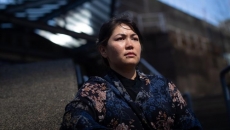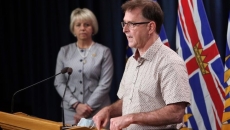The Indigenous Tourism Association of Canada is making a bleak prediction about its members' ability to rapidly recover from the COVID-19 pandemic.
The association says even with the very best travel conditions, Indigenous tourism operations are not expected to return to pre-pandemic levels until 2028.
A report from the association and the Conference Board of Canada shows modest recovery over the last year, but it still projects an overall 54 per cent decline since the pandemic hit last March.
It says Indigenous tourism created about 39,000 jobs and contributed an estimated $1.86 billion in direct gross domestic product before the arrival of COVID-19.
That fell to just $580 million and about 11,000 workers at the height of virus-induced shutdowns and recovered this year to just under 19,000 employees and $858 million in direct GDP.
The report says the pandemic has had a "deep and serious impact" on most Indigenous tourism operators and the conference board estimates at least one-third of the businesses that took part in its recent surveys could still be at risk of closure by 2022.
More than 60 per cent of the roughly 650 Indigenous tourism operators that participated in the 2020 and 2021 surveys reported concerns that COVID-19 would affect their business into next year or longer.
Keith Henry, president and CEO of the Indigenous Tourism Association of Canada, said the findings are important even though the devastating effects of the pandemic were expected.
"Research like this is important to gauge the health of our industry with concrete data, even if it shows our greatest fears playing out, including over one billion dollars worth of sales lost," Henry said in the release issued by the association and conference board.
The association's research used the Destination Canada recovery model and found a return to pre-pandemic 2019 levels would take even longer, almost a decade, to 2028.
"An even bigger decline is expected if more waves of COVID-19 force further provincial and territorial lockdowns and issues around human resources and lack of support continue to strike across the country," said the release.
Indigenous-led solutions and tailored policy responses from government are the best way to meet the diverse needs of Indigenous tourism businesses, Henry said.
He called for the issue to become a key topic addressed by all parties in the final week of the federal election campaign.






